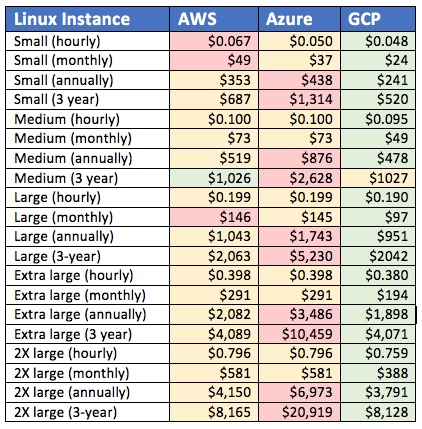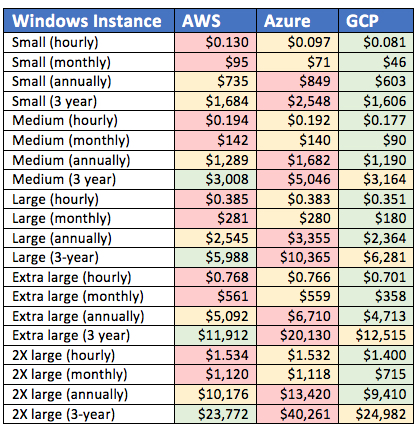Supplier Report: 12/29/2017

Amazon is still hustling late into the year. They announced the acquisition of wireless camera company Blink. There is also more information about Amazon’s plans to get into online advertising… Google and Facebook should be concerned.
Uber gets another life-line as SoftBank purchases a 30% stake in the company.
Microsoft is making a push to replace traditional passwords with bio-metric solutions like iris scanning. It does sound less complicated, but there is something about having a IR laser blasting my eyeball that fills me with unease.
Acquisitions
- Amazon buys Blink wire-free connected camera startup
Amazon has acquired Blink, the wireless security camera company that launched back in 2014 and then subsequently closed a million-dollar Kickstarter campaign. The deal was announced today, and for the moment will see Blink continue to operate as-is, with no changes to the company’s line-up. That includes the recently announced Blink Video Doorbell.
https://www.slashgear.com/amazon-buys-blink-wire-free-connected-camera-startup-22512665/
- SoftBank Succeeds in Tender Offer for Large Stake in Uber
SoftBank Group Corp. won its bid to buy a major stake in Uber Technologies Inc. at a steep discount to the company’s previous valuation in a deal that gives the world’s biggest tech investor sway over the most valuable U.S. startup.
Uber investors and employees tendered shares equal to about 20% of the company in an offer by a SoftBank-led consortium that values Uber at $48 billion—a roughly 30% discount to its most recent valuation of about $68 billion, people familiar with the matter said.
The group will end up acquiring slightly less: SoftBank itself will own about 15% of Uber, and other members of SoftBank’s bidding group will get a stake of around 3%, one of the people said.
https://www.wsj.com/articles/softbank-succeeds-in-tender-offer-for-large-stake-in-uber-1514483283
Artificial Intelligence
- What Amazon’s Alexa economy pays the people building its skills
Wilson unexpectedly joined a new Alexa economy, a small but fast-growing network of independent developers, marketing companies and Alexa tools makers. They’re working to bring you voice-activated flash briefings, games and recipes through Amazon’s Echo speaker, Alexa’s primary home. By doing so, they hope to define the 3-year-old Alexa platform and make money from voice computing’s surging popularity.
Two years ago, there wasn’t nearly as much to do on Alexa and the market for making Alexa skills was worth a mere $500,000. Now, with more than 25,000 skills available, the market is expected to hit $50 million in 2018, according to analytics firm VoiceLabs. That’s dwarfed by the mobile app economy, with global sales of over $50 billion, but Alexa is growing at a far faster rate.
https://www.cnet.com/news/amazon-alexa-economy-echo-speaker-google-assistant-siri/
Cloud
- Amazon is planning a push into digital advertising in 2018, challenging Google and Facebook
Digital advertising was a $209 billion business globally in 2017, according to media buying research firm Magna Global. And it’s only increasing: The company predicts the industry will grow 13 percent to $237 billion next year. The U.S. is currently the most lucrative market, where advertisers spent $40.1 billion on digital advertising during the first half of 2017 alone, according to digital ad industry group Interactive Advertising Bureau.
Although Amazon doesn’t break out revenues from its advertising business, eMarketer estimates Amazon was the fifth-largest digital advertiser in the U.S. in terms of revenue this year. Still, it makes up a little more than 2 percent of the market. It’s leagues below industry leaders Google and Facebook, which take home more than 70 percent combined, according to a recent estimate from analysts at Pivotal.
But advertisers have been searching for a third large competitor in order to lower prices and force Google and Facebook to be more open about sharing user data. Amazon could be a major player, if only based on the sheer volume of consumer insights it has thanks to its robust e-commerce business.
https://www.cnbc.com/2017/12/26/amazon-digital-advertising-push-in-2018.html

Software/SaaS
- Oracle: A Classic Case Of Cannibalization
If cloud computing is classified as a disruptor, Oracle (ORCL) is definitely the flag bearer for the incumbents that are being disrupted. One of the pioneers of the information technology industry, Oracle had conceded its dominance to the likes of Amazon (AMZN) and Microsoft (MSFT) in the cloud computing space.
Although Oracle’s total cloud revenues were up 60% in 2017 and have more than doubled in the last two years, they are at best substituting for the decline in its traditional revenue streams – software, hardware, and services. Revenues of new software licenses were down 32%, hardware revenues were down 34%, and service revenues were down 21% in the last five years. Hence, the total cumulative growth in revenues over the last five years is merely 1.64%. In fact, sales in 2017 were marginally lower than that in 2015 and 2014. Despite the scrimpy growth rates, the stock is up over 90% since May 2012. Shareholders are rewarded generously by increase in dividends and share repurchase programs over that period as well.
https://seekingalpha.com/article/4134078-oracle-classic-case-cannibalization
- Goldman is reportedly getting into bitcoin and crypto trading
The bank is said to be in the early stages of setup, which means hiring and figuring out the logistics, including how the bank will hold the assets and keep them secure. The ultimate goal, Bloomberg claimed, is to begin trading by June 2018.
“In response to client interest in digital currencies, we are exploring how best to serve them,” the bank told Bloomberg in a statement.
The move would make it the first major bank to embrace trading bitcoin and cryptocoins, which have surged in value in 2017, with bitcoin itself getting close to the $20,000 mark before falling this week. It’s current price is $14,633, according to Coindesk, a huge jump on $998 on January 1 2017.
https://techcrunch.com/2017/12/21/goldman-bitcoin-crypto-trading/?ncid=rss
- Blockchain Pumping New Life Into Old-School Companies Like IBM
That’s creating new opportunities for some of the old warships of the technology world, companies like IBM and Microsoft Corp. that are making the transition to cloud services. And products that had gone out of vogue, such as databases sold by Oracle Corp., are becoming sexy again.
“All of these things will get a new life because of blockchain,” said Jerry Cuomo, vice president of technology for IBM Blockchain. “Our sales team loves blockchain because a customer that is buying blockchain rarely walks out of the store with just blockchain. They walk out with multiple things in their cart.”
https://www.bloomberg.com/news/articles/2017-12-26/blockchain-pumping-new-life-into-old-school-companies-like-ibm
I am sharing this article because it is a great example of media bias. “All of these things will be new life” because nobody is buying IBM software and Oracle DBs.
Security
- Microsoft says it’s time to kill the traditional passwords system
Windows Hello allows users to log in with their iris, thus the new system is slightly better than the passwords. In a blog post, Bret Arsenault, corporate vice president for Microsoft and chief information security officer highlighted the reason why it’s time to kill the traditional passwords system.
According to Microsoft, Windows Hello is more convenient and easier to use. The software giant also claims that at least 70 percent of the Windows 10 users with biometric-enabled devices prefer Windows Hello over the password authentication system.
“We are encouraging users to try it, and see for themselves that it is easier to use than passwords. I think one of the fears that people have is that new technology is just going to be more complicated, and not realize that we’ve pushed to make it simpler and better,” says Rob Lefferts, director of program management for Windows Enterprise and Security at Microsoft.
https://www.windowslatest.com/2017/12/28/microsoft-says-time-kill-passwords-sucks/
Photo: Tristan Gassert
News You Can Use: 12/27/2017

- Former Facebook exec says social media is ripping apart society
Palihapitiya’s criticisms were aimed not only at Facebook, but the wider online ecosystem. “The short-term, dopamine-driven feedback loops we’ve created are destroying how society works,” he said, referring to online interactions driven by “hearts, likes, thumbs-up.” “No civil discourse, no cooperation; misinformation, mistruth. And it’s not an American problem — this is not about Russians ads. This is a global problem.”
He went on to describe an incident in India where hoax messages about kidnappings shared on WhatsApp led to the lynching of seven innocent people. “That’s what we’re dealing with,” said Palihapitiya. “And imagine taking that to the extreme, where bad actors can now manipulate large swathes of people to do anything you want. It’s just a really, really bad state of affairs.” He says he tries to use Facebook as little as possible, and that his children “aren’t allowed to use that shit.” He later adds, though, that he believes the company “overwhelmingly does good in the world.”
https://www.theverge.com/2017/12/11/16761016/former-facebook-exec-ripping-apart-society
- The Services Procurement Machine is Broken — Here’s Why You Should Trade it in for a New Approach
Engagements measured on cost and milestones alone fail to secure the best value for the business, as quality and innovation are often the first casualties to such an approach. What’s more, the structure of the machine has forced procurement to accept increased supplier rationalization and a narrow preference for larger services providers. Stuck working with big, “safe” firms, businesses have lost access to the high-performing talent and innovative solutions smaller firms can offer.
But let’s not get all touchy-feely here: no gently swung process automation hammer is going to shatter an old system. What’s needed to creating lasting improvement is a root cause analysis of why the machine broke in the first place.
Also:
Second, the machine’s focus on cost and risk avoidance has led to increased supplier rationalization. This can be great for MRO, but the same strategy for safety supplies or lightbulbs is not necessarily the right one to tap specialized creative or strategic talent. The result is small and medium-sized suppliers that have the expertise and connections to drive greater success on a localized basis in a global world end up getting locked out of the process.
http://spendmatters.com/2017/12/04/services-procurement-machine-broken-heres-trade-new-approach/
- How Will the Web Look Without Net Neutrality? We Travel Into the Future to Find Out
https://www.wsj.com/articles/how-will-the-web-look-like-without-net-neutrality-we-travel-into-the-future-to-find-out-1513369387 - How A Flexible Work Culture Works For Everyone
Reduce the barriers to attracting top talent: Work-life balance ranks as the number one career goal for all three major generations — baby boomers, Generation X and millennials — according to our research with Intel. Offering flexible work arrangements can help remove geographical barriers, ensuring that you can hire and retain the best candidates, regardless of location or other barriers. (I recently wrote more on generational workplace values.)
Benefit the planet: Flexible work practices also help businesses to conserve natural resources and energy. With fewer people in the office and on the road, you’re helping reduce transportation-related pollution and can maximize office space usage. An internal Dell study in 2015 revealed that its Connected Workplace program in the United States alone helped reduce an estimate 25 million kWh of energy. Gallup data suggests that the U.S. workforce avoids 2.7 billion round-trips per year by telecommuting — a reduction of 30 million metric tons CO2e per year.
- Estonia, the Digital Republic
Today, citizens can vote from their laptops and challenge parking tickets from home. They do so through the “once only” policy, which dictates that no single piece of information should be entered twice. Instead of having to “prepare” a loan application, applicants have their data—income, debt, savings—pulled from elsewhere in the system. There’s nothing to fill out in doctors’ waiting rooms, because physicians can access their patients’ medical histories. Estonia’s system is keyed to a chip-I.D. card that reduces typically onerous, integrative processes—such as doing taxes—to quick work. “If a couple in love would like to marry, they still have to visit the government location and express their will,” Andrus Kaarelson, a director at the Estonian Information Systems Authority, says. But, apart from transfers of physical property, such as buying a house, all bureaucratic processes can be done online.
https://www.newyorker.com/magazine/2017/12/18/estonia-the-digital-republic
Photo: Jaanus Jagomägi
Supplier Report: 12/22/2017

Twas the Supplier Report before Xmas and I have to admit…
I didn’t predict Google’s announcement of the step-down of Eric Schmidt.
On to other things that you should know…
Apple confirmed they made your phone slow.
Here, at the end of the fourth term…
Oracle and Accenture bought out two firms.
And finally, our friends at Comcast and AT&T…
Are rewarding their employees financially.
This bonus is a result of the FCC…
Making changes to how we access content digitally.

Acquisitions
- Oracle to Buy Australian Software Maker Aconex
Oracle Corp. has struck a $1.2 billion deal to buy an Australian project-management software provider, the latest leg in its push to take on Amazon.com Inc. and others in selling cloud-computing services.
The California-based software company on Monday said it had entered a binding takeover agreement after offering 7.80 Australian dollars ($5.96) cash a share for Aconex Ltd., valuing the Australian company at A$1.6 billion.
https://www.wsj.com/articles/oracle-to-buy-australian-software-maker-aconex-1513551593
- Accenture acquires Irish creative agency Rothco
Accenture has entered into an agreement to acquire Rothco, a full-service creative agency. Located in Dublin, Rothco will boost Accenture Ireland’s creative capabilities and those of Accenture Interactive as an experience agency in Europe. Thanks to acquisitions including Brand, Karmarama and Australia’s The Monkeys, among a great many other creative agencies, Accenture Interactive is now thought by many to rank as one of the world’s biggest digital agencies, leading to the creative wing delivering high-profile end-to-end solutions for global brands including Pearson publishing, although their actual size and influence is still a matter hotly contested by advertising industry heavyweights such as WPP.
https://www.consultancy.uk/news/15070/accenture-acquires-irish-creative-agency-rothco
Artificial Intelligence
- Accenture CEO: Company’s ‘Evolving’ its Digital Business to Take Advantage of AI
To that end, he said, “going forward, Accenture Digital will be focused on three big areas: Accenture Interactive, Accenture Industry X.0 and Accenture Applied Intelligence.” As part of the strategy, Accenture Interactive will work with CMOs to help brands “transform the customer experience,” he said, adding the company is “strengthening our end-to-end marketing capabilities for CMOs by investing to scale intelligent marketing operations.” That capability “combines platforms, analytics and artificial intelligence to run marketing campaigns as a seamless managed service,” he said.
http://www.mesalliance.org/2017/12/21/accenture-ceo-companys-evolving-digital-business-take-advantage-ai/

“Accenture Industry X.0″…reminds me when everything was “xtreme” in the late 90’s…kewl marketing terms bra - Youngest IBM Watson Programmer Says Do Not Be Afraid of Artificial Intelligence
The youngest IBM Watson Programmer, Tanmay Bakshi says that the leaders today should not be afraid of Artificial Intelligence (AI). Tanmay and his sister Tanvi, talk to host Kimberli Lewis, of Leadership Beyond Borders on VoiceAmerica’s Business channel, about why AI is important now and for our future.
Tanmay, one of the youngest cloud computing developers in the world, has been programming since he was 5 and now, at the age of 14, he is building applications engineered to augment human capabilities.
The Bakshi family immigrated from India to Canada, when both Tanmay and Tanvi were young children. These two Generation Z-ers, talk about what it was like to immigrate, how education and learning is important and why AI is an opportunity not a threat.
http://www.digitaljournal.com/pr/3603688
Programming AI at 14… I need to re-evaluate how I spend my time.
Cloud
- Why an (unofficial) anti-Amazon alliance is a very good thing
Amazon is going to take a lot of effort to stop. Even the three other gargantuan tech companies are in danger of being overwhelmed, as Amazon spends more on R&D than any other company on the planet.
The risk isn’t that we see more squabbles between competing streaming platforms or hardware availability limits, it’s that the efforts to stop Amazon are so late that retail is dominated by one player with so many network effect positives it’s almost impossible to compete.
The Big Four look like they’ll be overshadowed by one big player: Amazon. Scott Galloway’s new book The Four is invaluable extended reading on this subject.
All of this is a U.S.-centric view though – Chinese online retailing behemoth Alibaba has a market cap of $450 billion and on the back on China’s continuing rise, could have the muscle to fight Amazon. Both are currently competing to tap India’s emerging ecommerce market.
https://www.androidauthority.com/why-an-unofficial-anti-amazon-alliance-is-a-very-good-thing-822092/
- Cloud Price Comparison: AWS vs. Azure vs. Google
The charts below show how AWS, Azure and GCP stack up for Linux and Windows instances of various sizes and commitment contracts. And to make the charts a little easier to read, the lowest cost in each category is green, the second lowest is yellow, and the most expensive is pink.
Linux:

Windows:

https://www.datamation.com/cloud-computing/cloud-price-comparison-aws-vs.-azure-vs.-google.html
Datacenter
- IBM Enters Quantum Computing Business with First Paying Customers
In addition to JPMorgan Chase, Daimler AG, and Samsung, the first customers include JSR Corporation, Barclays, Hitachi Metals, Honda, Nagase, Keio University, Oak Ridge National Lab, Oxford University, and University of Melbourne. All of them will be will be able to tap into IBM’s 20-qubit quantum computer, which the company installed in November. A 50-qubit system, which is currently just a prototype, will be offered to customers in a future version of the platform.
Each of the initial clients will use the opportunity to research and develop quantum computing applications related to their area of expertise. In the case of JP Morgan Chase, the company will focus on how the technology can be applied to financial services applications, including trading, portfolio optimization, asset pricing, and risk analysis.
https://www.top500.org/news/ibm-enters-quantum-computing-business-with-first-paying-customers/
Software/SaaS
- Acquision of SAP to Ariba (not much of a headline tbh)
Automation of the fundamental procedure of any supply chain is vital, however it’s insufficient. To gain power of your supply chain and your spending, you have to move your point of view from the procedure to the master plan. What’s more, you have to find an innovation accomplice that can help. An accomplice who can enable you to supplier how you can work together with your providers, who comprehends the complexities of dealing with a solid supply chain, and who can interface all aspects of your obtaining procedure over your whole business while giving your providers an approach to better oversee and grow theirs.
SAP Ariba coordinates the whole purchasing process over your whole association. When you associate with Ariba Network, you interface with a huge number of providers crosswise over immediate and indirect cost categories.
http://nbherard.com/business/acquision-of-sap-to-ariba/38270
Other
- Eric Schmidt stepping down as Alphabet’s executive chairman to become a ‘technical advisor’
“Larry, Sergey, Sundar and I all believe that the time is right in Alphabet’s evolution for this transition,” he said in the statement. “The Alphabet structure is working well, and Google and the Other Bets are thriving. In recent years, I’ve been spending a lot of my time on science and technology issues, and philanthropy, and I plan to expand that work.”
Schmidt joined up with Google in 2001, stepping into the role of CEO at the behest of founders Larry Page and Sergey Brin, after stints at Sun Microsystems and Novell. Around the time of the company’s 2004 IPO, the trio reportedly pledged to work together for another 20 years.
Of course, Schmidt handed the baton to Page in 2011. Four years later, when Google restructured to form Alphabet, Page became its CEO, with Sundar Pichai stepping in to take over Google.
- Cloud revenue helps Oracle beat earnings forecast this time, but outlook tanks shares
Oracle said it earned a profit of nearly $3 billion before certain expenses such as stock compensation, or 70 cents a share, up 14 percent from a year ago. Revenue rose 6 percent, to $9.62 billion. Analysts had expected an adjusted profit of 68 cents a share on revenue of $9.57 billion. Traditional on-premises software brought in the vast majority of revenue, at $6.3 billion, up 3 percent. But the portion from new software licenses was flat at $1.35 billion, making growth in cloud revenue crucial.
Software-as-a-service applications saw growth of 55 percent, to $1.1 billion, while infrastructure as a service, the base-level computing and storage services that compete with public cloud leaders such as Amazon Web Services Inc. and Microsoft Corp.’s Azure, grew only 21 percent. That’s well behind the growth rate of the leaders. But Catz added that the cloud revenue includes older hosting revenue that’s slowing, masking higher growth in newer-generation cloud computing.
- Apple: Yes, we’re slowing down older iPhones
The tech giant issued a rare statement of explanation on Thursday, saying that it has used software updates to limit the performance of older iPhones and prevent them from shutting down unexpectedly.
Tech analysts and angry customers have reported in recent days that operating system updates had caused older iPhones to slow considerably, with some suggesting that Apple could be using the tactic to encourage fans to buy new phones.
Apple insists the updates were made with a different goal in mind: It said the performance of lithium-ion batteries degrades over time, which can sometimes cause phones to suddenly shut down in order to protect their components.
http://money.cnn.com/2017/12/21/technology/apple-slows-down-old-iphones/

- AT&T, Comcast giving $1,000 bonuses to hundreds of thousands of workers after tax bill
Telecom giant AT&T was quick to respond to news of U.S. tax reform, announcing it would give some employees bonuses once the legislation is signed into law.
AT&T said in a press release Wednesday that it would give more than 200,000 of its U.S. workers who are union members a special bonus of $1,000. The company also increased its capital expenditures budget by $1 billion in the U.S.
https://www.cnbc.com/2017/12/20/tax-reform-reaction-att-is-giving-bonuses-to-200000-employees.html
- Uber Is a Taxi Service, the E.C.J. Rules, in Major Setback for Firm
In the decision, the court determined that Uber, which connects drivers with riders through a smartphone app for payments, “must be regarded as being inherently linked to a transport service.” The 28 member countries in the European bloc will have to regulate “the conditions under which such services are to be provided,” the court added.
The European court ruling applies across the European Union, but not elsewhere. In a statement, the company said that it was already operating under the transportation law of most European countries in which it did business, and that the ruling would have little impact. It added that it would continue a dialogue with cities across Europe for its services.
The case may provide a benchmark for countries seeking to regulate independent workers, who make up as much as 30 percent of the working-age population in the United States and Europe, according to the McKinsey Global Institute. Some worry, though, that such a group could soon become an underclass.
https://www.nytimes.com/2017/12/20/business/uber-europe-ecj.html
Photo: Kira auf der Heide

